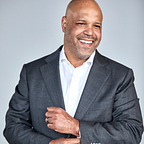Much of the information out there today about networking assumes you are just starting your career. If you are a recent college graduate or still early in your career, there is a plethora of resources that you can glean information from. Like many aspects of our society, most of the resources are targeted toward the young. But what if you have been around for a minute? Or like the Farmer’s Insurance ad, “Seen some things”. How do you learn how to become a good networker at this stage of your life.
The good news is that as a seasoned corporate person, or entrepreneur you have a couple of advantages over your younger counterparts. One is that you have probably accumulated hundreds of names and relationships over the years and two you should have a better idea of where you want to go at this stage of your life. Additionally, the penalty for not keeping in touch with people is generally not as steep as one would think.
For example, you may believe that the person you haven’t spoken with since college would be unwilling to reconnect with you. Over and over, I’ve found that not to be true. What I have found is that most people are happy to be thought of. Recent studies show that there is some truth to this belief. In his book, “Bowling Alone”, Robert Putnam talks about how the Social Capital of America is eroding. People are much less likely to participate in offline groups. The endless stream (literally) of entertainment and educational options from the comfort and safety of our homes makes it easy to skip the various group meetings around the community.
Unfortunately, these online communities are not a great replacement for personal contact. Try to remember the last time someone you had not talked to in more than five years called you just to say hello. How did it make you feel. It probably felt pretty good, right. Especially if they didn’t steer the conversation into an MLM recruitment pitch. The key to these kinds of calls is genuine interest.
Because you have accumulated dozens if not hundreds of these weak ties you have a huge advantage over someone who is just starting their career. It simply takes a change in mindset. Instead of imagining that someone you haven’t spoken to in a while will be suspicious of your intent think about how wonderful it will make them feel to reconnect. Have you ever been in an airport or visiting a city when you randomly bump into someone you haven’t seen in years or even decade and it seems like mere days have passed? You can create that type of energy intentionally.
Step one — Pick up the phone and go through your contacts calling or texting everyone you remember and who you think will remember you. College buddies, old co-workers, that person you met at the convention in [city].
Step two — Just say hello. “I don’t need anything, just came across your name in my contacts and wondered how you were”.
Step three — Let the conversation flow and make a plan to reconnect at some point in the near future (in person if possible).
That’s it. Sounds simple. The only roadblock is your fear that the call may be unpleasant. Rest assured that very, very few calls will be unpleasant at all. The vast majority of people will be happy to hear from you and want to share the details of their lives since you last spoke.
Ok, that’s great Ray, but how does this help me. Simple, by reconnecting with old friends and colleagues you are also reconnecting with their network. By keeping in contact with them over the next months or years you will expand your reach exponentially beyond where you are today. The key to this method is consistency. If you contact these people and then let another 5 years pass before speaking with them again, it does you no good. Create some time on your calendar to call the folks who you think would be resourceful and willing to help you in the future and maintain contact with them on a regular basis.
If you follow these three simple steps, you should be able to rebuild connections from your past that can help you in your career or business.
